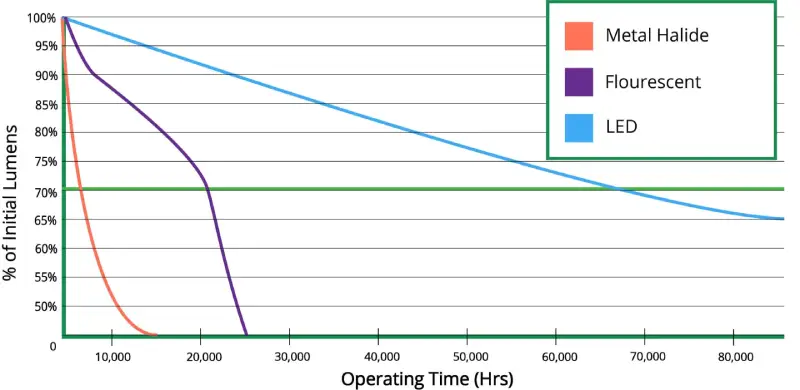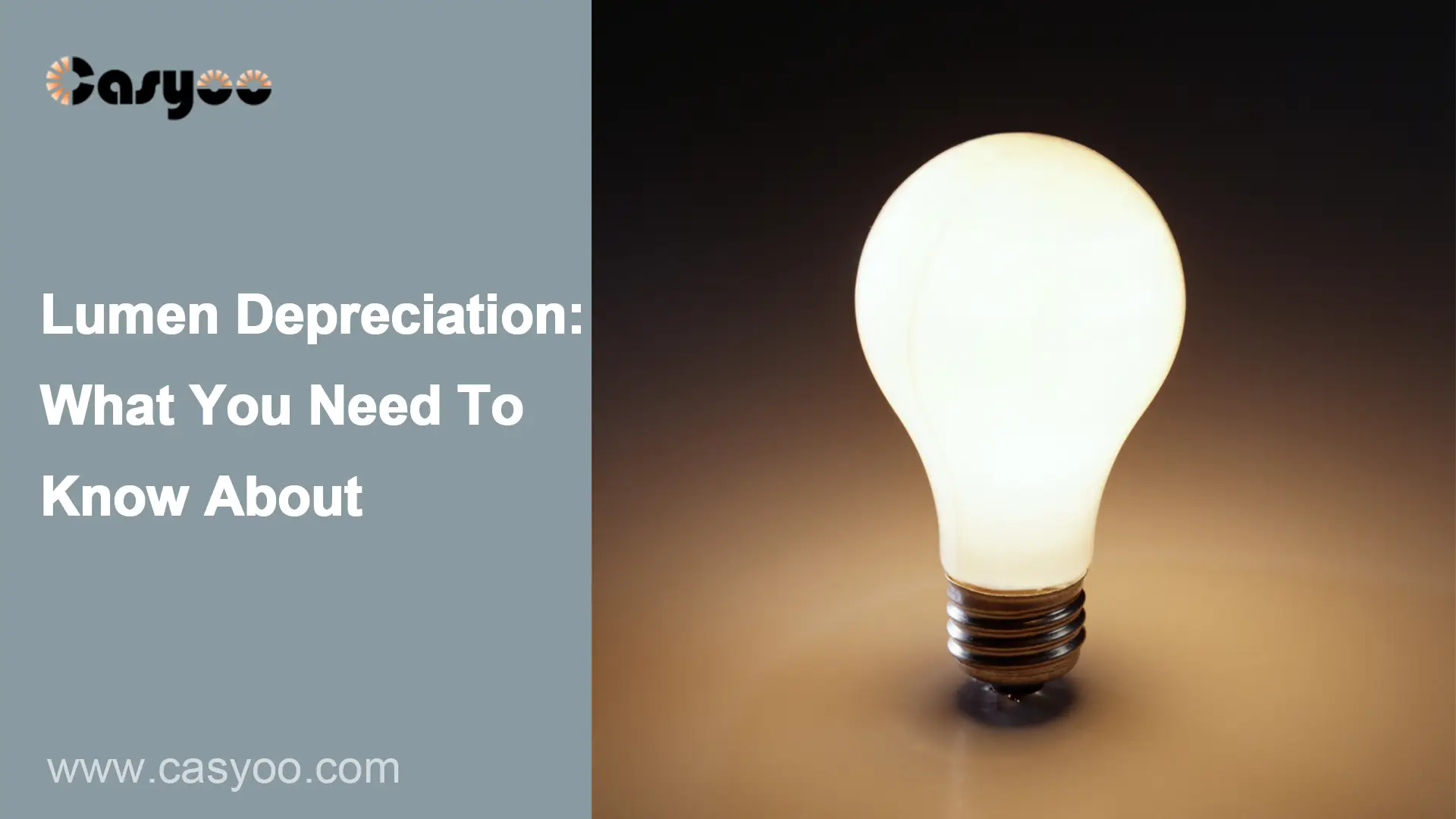What Is Lumen Depreciation?
The simple definition of lumen depreciation is the gradual reduction in lumen output in any particular bulb over time. Most lights gradually lose lumens, albeit the amount varies depending on the type. It is crucial to understand that burning out a bulb is not the same as lumen depreciation. Lumens gradually diminish over time as a result of frequent use, a process known as lumen depreciation. For example, a light depreciates by 200 lumens if it produces 800 lumens when it is brand new and only produces 600 lumens after five years.
Why Does Lumen Depreciation Matter?
Most rooms need a certain amount of lumens to maintain adequate illumination, lumen depreciation is therefore important. The room will be darker if these lumens are lost over time.
The cost is another consideration. For instance, you will need to change your bulbs more frequently to maintain the required amount of lumens for the area if you use ones with a higher lumen depreciation.
Which Lights Have Better Lumen Maintenance?

There’s an option that stands out above the others on the market for those seeking the finest lumen maintenance over an extended period in a lighting solution. Compared to other solutions like metal halide, compact fluorescent, or incandescent, LEDs have better lumen maintenance.
The rate of lumen depreciation can be calculated when comparing the total lumen output with the average service life of the light. LEDs have a lumen depreciation rating of 70%, meaning that at the end of the predicted life rating time, they can retain up to 70% of their initial lumen output, while most metal halides and fluorescents have a rating of 50%.





